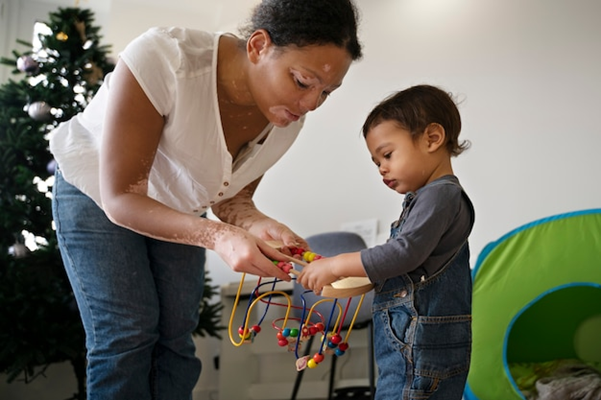When we talk about pediatric neurodevelopment, we’re exploring a crucial aspect of children’s growth. This area of health focuses on how a child’s brain and nervous system develop. It’s important because it affects every part of a child’s life — from how they think, move, to how they interact socially.
Sometimes, children experience neurodevelopmental delays. Parents might notice signs like late talking, difficulty with motor skills, or trouble interacting with others. These are cues that a child might need some extra help.
That’s where a multidisciplinary approach comes into play. It’s like forming a superhero team to support a child. This strategy brings together experts from different fields, like speech therapy and occupational therapy, to create a well-rounded support system. So, instead of working alone, these specialists join forces to help children reach their full potential.
Understanding the Multidisciplinary Approach: A Collaborative Journey
So, what exactly is a multidisciplinary approach in pediatric care? Simply put, it’s a team-centric approach where various specialists work together instead of separately. Imagine it as everyone sitting around one table, discussing the best ways to help a child.
Key players in this team often include:
- Speech therapists, who assist with communication issues.
- Occupational therapists, focusing on helping kids with everyday tasks.
- Pediatricians, who oversee their overall health.
Each specialist brings something unique to the table. The goal is simple: provide all-encompassing care that looks at emotional, cognitive, social, and physical growth. This method offers a more complete form of care than tackling issues in isolation.
The Power of Holistic Care: Comprehensive Child Development
Bringing together different disciplines results in a comprehensive care plan. This plan covers everything, from emotional to physical needs, ensuring all bases are covered.
Imagine a child with language challenges. A team working together might combine speech therapy and neurodevelopmental activities to bolster their communication skills. Meanwhile, occupational therapy for neurodevelopmental delays helps improve motor skills. When these therapies are combined, their impact multiplies, promoting better progress.
Ultimately, the strategy views the child as more than just a list of symptoms. It tailors interventions to each child’s unique needs, helping them thrive in all areas.
Effective Communication: Coordination Among Specialists
Multidisciplinary teams in pediatrics thrive on outstanding communication. Regular talks among specialists mean no conflicting advice. Everyone is on the same page, making sure plans are solid and cohesive.
Shared documentation is another benefit. It streamlines a child’s developmental history and updates everyone on treatment progress quickly.
For parents, this offers peace of mind. Knowing all specialists work from the same playbook ensures that the care plan is effective and unified.
Independence and Long-Term Benefits: Growing Beyond Initial Goals
A multidisciplinary approach in treating neurodevelopmental delays leads to meaningful long-term gains. Children gain independence and life skills crucial for thriving in daily life. Recent studies back this up, showcasing the merits of early and team-based intervention.
Kids who undergo these comprehensive plans adjust better into school and social environments. These changes aren’t just skin-deep. They enable kids to function well in new settings, aiding smoother transitions anywhere they go.
Providing children with a Individualized Education Plan (IEP), guided by this team approach, ensures they’re always supported.
Navigating Stress: Family Support in Multidisciplinary Care
For parents, coordinating various treatments can feel overwhelming. But integrated care plans ease this stress significantly. The Multidisciplinary approach in treating neurodevelopmental delays offers emotional support, guiding families through every step.
Parents receive practical advice that can dramatically improve the development journey for their children. Knowing they’re not alone — because a team always has their back — builds confidence.
These consistent efforts let parents focus more on enjoying life with their children instead of worrying about juggling appointments. This system not only lifts burdens but amplifies joys as well.
By leaning on this holistic strategy, families find a guiding light in navigating the challenges of neurodevelopmental delays. Emphasis on communication and tailored plans ensures every child has the tools to succeed, both now and long into the future.


